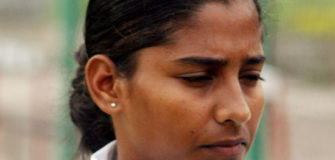The Hindu: Rule changes a challenge for sub-continent players
The Hindu: Rule changes a challenge for sub-continent players
Share
Rule changes a challenge for sub-continent players
Y. B. Sarangi
The ‘own goal’ concept introduced by the International Hockey Federation (FIH) in the rule books for 2013 may interest the keen followers of the sport.
According to Rule 8.1, which deals with the method of scoring, the way a goal is scored has been amended; it now includes what is sometimes referred to as an ‘own goal.’ That is a goal can be scored after the ball is touched in the circle by either an attacker or a defender.
FIH says the important rule change has been introduced to set aside any confusion in the minds of the general spectators.
“It has been done to simplify the game. It is for the outside audience. It will present our game in a better way. When the ball enters the goal from a defender’s stick, hockey people know it is not a goal. But the people in the stands do not know it,” said FIH Master Coach Tayyab Ikram.
The ongoing National junior hockey championship here was the first event in the country to introduce the rule change immediately after it was released by the FIH. The championship, so far, has witnessed several ‘own goals’ with the match-sheet mentioning an ‘OG’ with the goal not being attributed to anyone.
“It is an own goal. So, how can it be attributed to anyone? Suppose two defenders are passing the ball to each other and a goal is scored accidentally, then how can it be attributed to a scorer?” argued Ikram.
The other rule change is the ‘procedures for taking a free hit, centre pass and putting the back into play.’ As per the new rule (Rules 13.2 d and e), “The ball may now be raised intentionally and directly using a push, flick or scoop action; this action must be conducted safely. This is essentially an evolution of what is known as the self-pass from a free hit. By having the option to raise the ball immediately, opposing players will not have the opportunity to get closer than five metres; a raised ball will be safer.”
Former India coach Harendra Singh said it would be a challenge for players from the sub-continent, since the sport would become faster with more stress on power.
“The rule changes will suit the Europeans better as their slap shots, hitting and stopping are better. Indians are poor in hitting and stopping. Our goalkeeping quality is not so good. Besides, Indian and Pakistani players face problems in dealing with the raised ball.”
“Now, to get own goals, hitting will become an important part of the strategy. Earlier, we relied on a set of crossing and hitting and wait for things to happen.
“Now we have to identify the defenders with weaker backhands (in the opposition camp) and make things happen,” said Harendra, the Chandigarh Comets coach in the World Series Hockey.
Adverse affect
A.K. Bansal, a prominent coach at the junior level, apprehended that the changes might adversely affect the beauty of the sport.
“Now, the focus will be on power-hitting. Sometimes, it may also become dangerous. This can also affect the spirit of penalty corners.”
“These experimental changes have been made to produce more goals and attract more spectators to the sport. But such frequent changes create confusion among the players. It should stop somewhere,” said Bansal.


